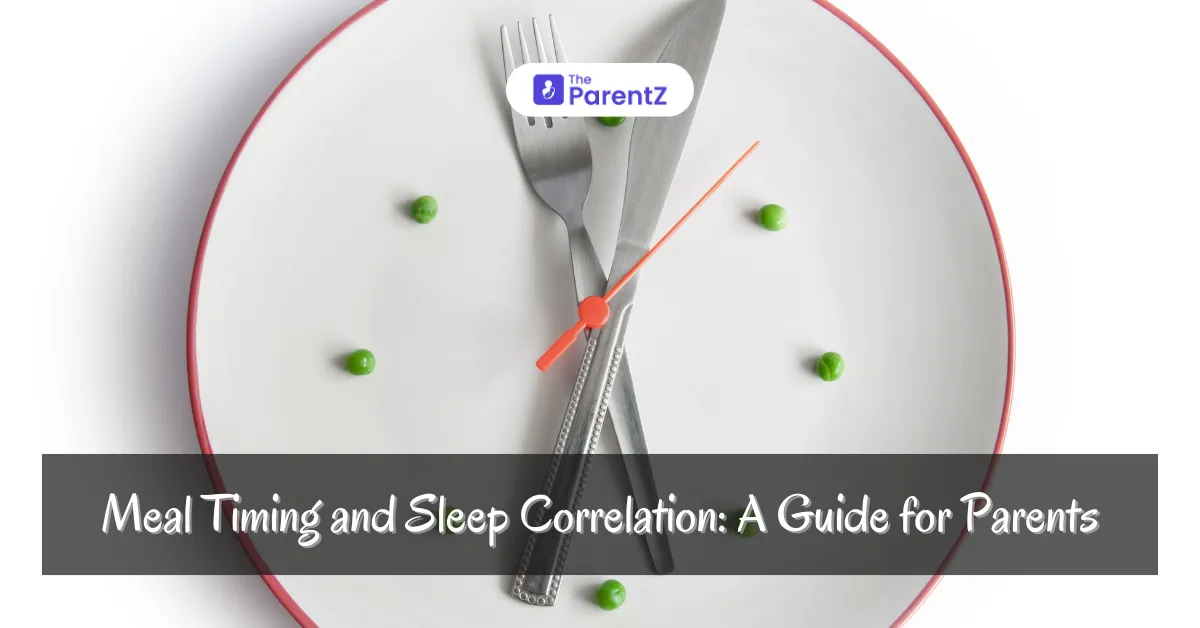As parents, we all want our children to succeed, and a significant part of that is ensuring they get enough restorative sleep. But did you know that the timing of meals can play a crucial role in your child’s sleep quality? Let’s explore the fascinating connection between meal timing and sleep, providing you with insights and advice to help you make informed decisions for your family.
Understanding the Sleep-Metabolism Connection
Sleep is not just a time for rest; it’s a vital process that affects every aspect of our health. For children, adequate sleep is essential for growth, cognitive development, and emotional regulation. Research has shown that meal timing can influence sleep patterns, with irregular eating schedules linked to poorer sleep quality. Children who eat at inconsistent times may struggle to establish a stable circadian rhythm, which can lead to difficulties falling asleep and staying asleep throughout the night.
Consistency is Key
Establishing regular mealtimes is one of the most effective strategies for improving sleep in children. Studies indicate that children who follow consistent eating patterns tend to sleep better than those with erratic schedules. In fact, children who snack or eat meals at unpredictable times are twice as likely to experience shorter sleep durations. This is because regular mealtimes help regulate the body’s internal clock, making it easier for kids to wind down at night.
Tip for Parents: Aim to have meals and snacks at roughly the same times each day. This consistency not only helps with sleep but also promotes better digestion and overall health.
The Impact of Meal Composition
What your child eats is just as important as when they eat. Diets rich in whole foods—like fruits, vegetables, whole grains, and lean proteins—are associated with improved sleep quality. Conversely, diets high in processed foods and sugars can lead to restless nights. Children consuming energy-dense foods are more likely to experience shorter sleep durations and poorer sleep quality.
Foods That Promote Sleep:
- Fruits and Vegetables: These are packed with vitamins and minerals that support overall health and well-being.
- Whole Grains: Foods like oatmeal or whole-grain bread can help stabilize blood sugar levels, promoting a more restful night.
- Lean Proteins: Chicken, fish, and beans provide essential nutrients without weighing down the digestive system.
Avoid: Heavy, greasy foods close to bedtime as they can lead to discomfort and disrupt sleep. To know more, go through 'Foods and Drinks to Avoid Before Bedtime: A Guide for Parents.'
Timing Matters: When to Eat
Eating too close to bedtime can be detrimental to your child’s sleep. Research suggests that having dinner too late—especially within two hours of bedtime—can interfere with their ability to fall asleep quickly. This is partly due to the body needing time to digest food before entering a restful state.
Recommended Meal Timing:
- Dinner: Aim for dinner to be served at least two hours before bedtime.
- Snacks: If your child needs a snack closer to bedtime, opt for something light and easy to digest, like yogurt or a piece of fruit.
Tip for Parents: Create a calming bedtime routine that includes winding down after dinner. This could involve reading together or engaging in quiet activities that signal it’s time for bed.
Hydration: The Liquid Factor
While staying hydrated is important, drinking excessive amounts of fluids right before bed can lead to frequent nighttime awakenings due to bathroom trips. Children should aim to drink most of their fluids earlier in the day. Limiting liquid intake in the evening can significantly improve uninterrupted sleep.
Milk Before Bed?
A common practice is giving children a glass of milk before bed. While milk contains tryptophan—an amino acid linked to sleep—it’s best consumed earlier in the evening rather than right before bed. If your child enjoys milk at night, consider serving it as part of dinner instead.
Conclusion
The correlation between meal timing and sleep quality in children underscores the importance of positive parenting strategies. By using the above tips, you can significantly enhance your child's ability to fall asleep and stay asleep.
Remember, your child's sleep is a puzzle, and meal timing is just one piece. But it's a pretty important piece! Experiment, observe, and find what works best for your children.








Be the first one to comment on this story.